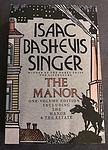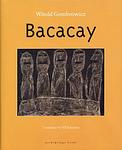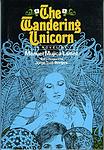The Greatest Polish, Argentinian "Fiction" Books Since 1950
Click to learn how this list is calculated.
This list represents a comprehensive and trusted collection of the greatest books. Developed through a specialized algorithm, it brings together 300 'best of' book lists to form a definitive guide to the world's most acclaimed books. For those interested in how these books are chosen, additional details can be found on the rankings page.
Genres
Countries
Date Range
Reading Statistics
Click the button below to see how many of these books you've read!
Download
If you're interested in downloading this list as a CSV file for use in a spreadsheet application, you can easily do so by clicking the button below. Please note that to ensure a manageable file size and faster download, the CSV will include details for only the first 500 books.
Download-
1. Labyrinths by Jorge Luis Borges
"Labyrinths" is a collection of short stories and essays that explore complex themes of infinity, parallel universes, and the blurred lines between reality and illusion. The narratives often feature protagonists who are scholars or librarians, trapped in surreal, metaphysical landscapes. The author's unique writing style combines elements of magical realism, philosophy, and detective fiction, creating an intricate web of narratives that challenge the reader's perception of reality and fiction.
-
2. Solaris by Stanislaw Lem
The novel is a psychological exploration of human limitations and failures set against the backdrop of space exploration. When a psychologist arrives at a research station orbiting a distant planet covered entirely by a sentient ocean, he discovers the crew in disarray, haunted by physical manifestations of their subconscious fears and desires. As he grapples with the ocean's inscrutable nature and its unsettling ability to materialize human thoughts, he is forced to confront his own guilt and regret, embodied by the apparition of his deceased wife. The story is a philosophical meditation on the impossibility of truly understanding alien intelligence and the painful isolation of the human condition.
-
3. Hopscotch by Julio Cortázar
This avant-garde novel invites readers into a non-linear narrative that can be read in two different orders, following the life of Horacio Oliveira, an Argentine intellectual living in Paris with his lover, La Maga. The story explores philosophical and metaphysical themes, delving into the nature of reality and the human condition, while also examining the struggles of intellectual and emotional life. The second part of the novel takes place in Buenos Aires, where Horacio returns after La Maga disappears, and where he grapples with his past, his identity, and his place in the world.
-
4. The Painted Bird by Jerzy Kosinski
"The Painted Bird" is a dark and harrowing novel set in Eastern Europe during World War II. The story follows a young, unnamed boy of unknown ethnicity who is sent by his parents to live in a remote village for safety. However, he is instead subjected to brutal violence, abuse, and superstition by the superstitious peasants. The book explores themes of survival, human cruelty, and the loss of innocence in the face of war and hatred.
-
5. The Magician of Lublin by Isaac Bashevis Singer
This novel tells the story of Yasha Mazur, a talented and renowned 19th-century Jewish magician living in Poland. Yasha is a complex character, torn between his own desires and the expectations of his religious community. He leads a double life, juggling his career, his marriage, and his multiple affairs. As he grapples with his conflicting identities, Yasha is forced to confront his own moral failings and the consequences of his actions. His journey is one of self-discovery and redemption, offering a nuanced exploration of faith, love, and the human condition.
-
6. Kiss of the Spider Woman by Manuel Puig
"Kiss of the Spider Woman" is a novel set in an Argentine prison where two cellmates, a gay window dresser and a political revolutionary, share stories to pass the time. The window dresser recounts various films he's seen, which often involve strong, glamorous women, while the revolutionary shares his political ideologies. As they spend time together, they form an unlikely bond, exploring themes of sexuality, oppression, and the power of storytelling.
-
7. Gimpel the Fool by Isaac B Singer
"Gimpel the Fool" is a collection of short stories that portray the life of Gimpel, a simple baker who is often deceived by the people in his town. Despite the continuous deceit, Gimpel maintains his faith in humanity and never seeks revenge. Throughout the stories, the protagonist's innocence and naivety are contrasted with the harsh realities of the world, exploring themes of faith, forgiveness, and the inherent goodness of people.
-
8. The Futurological Congress by Stanislaw Lem
In a dystopian future, the protagonist attends a scientific conference where he is exposed to a new hallucinogenic drug that transports him to a surreal and chaotic world. As he navigates through this bizarre reality, he becomes entangled in a conspiracy involving mind-altering technology, political manipulation, and the struggle for power. This satirical novel explores themes of reality, identity, and the dangers of unchecked technological advancements.
-
9. Betrayed by Rita Hayworth by Manuel Puig
The novel explores the life of a young boy growing up in a small town in Argentina during the 1930s and 1940s. It is a coming-of-age story that uses a unique narrative structure, incorporating a mix of dialogues, inner thoughts, and film scripts to depict the protagonist's life. The boy's obsession with Hollywood films and glamorous actresses, particularly Rita Hayworth, serves as an escape from his oppressive environment and shapes his understanding of the world. The book also delves into themes of sexuality, identity, and the impact of popular culture.
-
10. Heartbreak Tango by Manuel Puig
"Heartbreak Tango" is a tragicomedy that explores the intertwined lives of the inhabitants of a small town in Argentina. The narrative revolves around the life and death of a charismatic but flawed young man, Juan Carlos, who has relationships with multiple women, each of whom remember him differently. The story is told through a series of letters, diary entries, police reports, and gossip, presenting a multifaceted view of Juan Carlos and the impact he had on those around him. The novel also critiques the shallowness and hypocrisy of society, particularly in its treatment of women.
-
11. The Manor by Isaac Bashevis Singer
"The Manor" depicts the complex interplay between Jews and Polish nobility in 19th century Poland. The narrative focuses on the lives of two Jewish families, the Kalinowskis and the Dembowskis, who are tied together by marriage. As they navigate the political and social changes of the time, the characters grapple with issues of faith, tradition, assimilation and the struggle for survival. The book provides a vivid portrayal of Jewish life in Poland during a period of significant change and upheaval.
-
12. Dreamtigers by Jorge Luis Borges
"Dreamtigers" is a collection of short stories, essays, and poems that delve into the realm of metaphysics, infinity, mirrors, and changing identities. The book explores the author's fascination with the dream world and the blurred boundaries between reality and imagination. The narrative is filled with complex themes, paradoxes, and illusions, often inspired by the author's own experiences and his love for literature and philosophy.
-
13. Drive Your Plow Over the Bones of the Dead by Olga Tokarczuk
This novel centers around an eccentric woman living in a remote Polish village, who becomes embroiled in a series of mysterious deaths occurring in her community. As she investigates, she is drawn into a deeper exploration of nature, astrology, and the human psyche, all while navigating the dismissive attitudes of the local law enforcement. The narrative is a blend of dark comedy, philosophical inquiry, and mystery, with a strong underlying commentary on animal rights and environmentalism.
-
14. Bacacay by Witold Gombrowicz
"Bacacay" is a collection of darkly humorous and surreal short stories that delve into the absurdities of human behavior and social norms. The tales are set in a variety of locations and time periods, featuring a cast of eccentric characters who find themselves in bizarre and often grotesque situations. Through sharp wit and a playful manipulation of language, the stories satirize the pretensions and follies of society, challenging the reader's perceptions of reality and the boundaries of conventional storytelling.
-
15. The Witness by Juan José Saer
"The Witness" is a novel that explores the life of a young European boy who is the only survivor of a shipwreck in the 16th century. He is found and raised by a tribe of Indians in South America, where he spends ten years of his life. The boy is eventually found by a band of Spanish conquistadors and returns to Europe, where he becomes a well-respected scholar. The story unfolds as the man, now in his 90s, recounts his experiences and struggles to reconcile his European identity with his decade-long immersion in the tribal culture.
-
16. The Beautiful Mrs. Seidenman by Andrzej Szczypiorski
Set in Nazi-occupied Warsaw, the novel tells the story of Mrs. Seidenman, a blonde, blue-eyed Jewish widow who is arrested by the Gestapo. The narrative revolves around the eclectic group of characters in her life, including a young man who is in love with her and a lawyer who is determined to save her. The book provides a vivid and poignant depiction of life under Nazi rule, exploring themes of survival, resistance, and the resilience of the human spirit.
-
17. Trans Atlantyk by Witold Gombrowicz
"Trans Atlantyk" is a semi-autobiographical novel that explores the author's experiences as a Polish writer living in Argentina during World War II. The book delves into themes of identity, language, and cultural displacement, as the protagonist navigates the challenges of being an outsider in a foreign land. With a blend of humor and introspection, the novel offers a unique perspective on the complexities of exile and the struggle to maintain a sense of self in unfamiliar surroundings.
-
18. All Fires The Fire by Julio Cortázar
"All Fires The Fire" is a collection of short stories that explores the complexities of human relationships and the blurred lines between reality and imagination. Through vivid and imaginative storytelling, the author delves into themes of love, desire, and the search for meaning in a world filled with uncertainty. Each story presents a unique and thought-provoking narrative, inviting readers to question the boundaries of their own perceptions and the nature of existence itself.
-
19. The Censors by Luisa Valenzuela
"The Censors" is a satirical short story that delves into the life of a man who takes a job as a censor at a government agency in an attempt to intercept and approve his own letter, which he had previously sent abroad. As he becomes increasingly absorbed in his role, he starts to censor letters with zeal, losing sight of his original purpose. The story serves as a cautionary tale about the corrupting influence of power and the ease with which one can become complicit in oppressive systems, ultimately leading to a grim and ironic conclusion where the protagonist falls victim to the very system he sought to manipulate.
-
20. The Wandering Unicorn by Manuel Mujica Lainez
"The Wandering Unicorn" is a historical fantasy novel that weaves a tapestry of medieval legends, chivalric adventures, and magical realism. It follows the journey of a young unicorn who, under the guise of a beautiful page, seeks to protect Melusine, a cursed fairy who is half-woman, half-serpent. Set against the backdrop of the Crusades, the narrative intertwines the unicorn's quest for redemption and love with a rich cast of characters, including knights, sorcerers, and mythical creatures. The story delves into themes of immortality, transformation, and the enduring power of myth, all while painting a vivid picture of a bygone era filled with enchantment and intrigue.
-
21. The Seance and Other Stories by Isaac Bashevis Singer
"The Seance and Other Stories" is a collection of short stories that delve into the mystical and supernatural aspects of Jewish folklore. The tales are set in various locations and time periods, from pre-war Poland to contemporary America, and feature a wide range of characters, including rabbis, scholars, demons, and dybbuks. These stories explore themes of faith, morality, love, and the struggle between good and evil, all while maintaining a blend of humor, irony, and profound insight into the human condition.
-
22. Short Friday: And Other Stories by Isaac Bashevis Singer
"Short Friday: And Other Stories" is a collection of tales that delve into the rich tapestry of Jewish life, both in the Old World and the New. The stories explore themes of faith, love, sin, and the struggle between good and evil. They feature a range of characters, from rabbis and scholars to demons and dybbuks, each grappling with their own moral and existential dilemmas. The narratives are infused with a unique blend of humor, wisdom, and a profound understanding of the human condition.
-
23. Santa Evita by Tomás Eloy Martínez
"Santa Evita" is a fictionalized account of the life and death of Eva Peron, the beloved First Lady of Argentina. The book delves into the mysterious journey of her embalmed corpse which was moved around the world and hidden for 16 years after her death. The narrative, interwoven with historical facts, explores the cult-like fascination and devotion that surrounded her during her life and continues after her death.
-
24. The Impenetrable Madam X by Griselda Gambaro
"The Impenetrable Madam X" is a provocative play that delves into the complexities of human relationships and societal expectations. Set against a backdrop of surrealism and absurdity, the narrative follows the titular character, a woman shrouded in mystery and power, who interacts with various other characters in a series of disjointed scenes. Through sharp dialogue and symbolic interactions, the play explores themes of identity, power dynamics, and the struggle for understanding within the confines of a world that oscillates between the real and the fantastical. The work challenges audiences to question the nature of reality and the masks people wear in their daily lives.
-
25. The Complete Fiction Of Bruno Schulz: The Street Of Crocodiles, Sanatorium Under The Sign Of The Hourglass by Bruno Schulz
"The Complete Fiction of Bruno Schulz: The Street of Crocodiles, Sanatorium Under the Sign of the Hourglass" is a collection of two surreal and imaginative novellas by Bruno Schulz. In "The Street of Crocodiles," the narrator explores his childhood memories in a bustling town filled with eccentric characters and enchanting events. In "Sanatorium Under the Sign of the Hourglass," the protagonist finds himself in a peculiar sanatorium where time seems to stand still, leading to a series of dreamlike encounters and introspective musings. Schulz's unique writing style and vivid descriptions create a captivating reading experience that blurs the line between reality and fantasy.
Reading Statistics
Click the button below to see how many of these books you've read!
Download
If you're interested in downloading this list as a CSV file for use in a spreadsheet application, you can easily do so by clicking the button below. Please note that to ensure a manageable file size and faster download, the CSV will include details for only the first 500 books.
Download




















